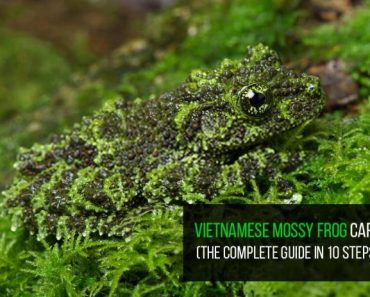For a powerhouse of healing nutrition, mushrooms can’t be beat. Find out which varieties are good for your dog, and try the recipes!
Mushrooms are a favorite delicacy for many people, but did you know they’re nutritious as well as delicious? Better still, you can share their unique flavors and health benefits with your dog. Let’s take a look at seven different mushrooms and how they can be used to enhance your canine companion’s well-being, along with some tasty recipes you’ll want to sample yourself!
1. Button mushrooms
Button mushrooms are the most cultivated edible mushrooms in the world. Not everyone knows that button mushrooms turn into Crimini mushrooms, and Criminis turn into Portobellos. It’s all part of their growth cycle; just a few days’ difference produces these three popular mushroom varieties.
They’re packed with naturally-occurring antioxidants, including all the B vitamins (except B12), along with copper, phosphorus, potassium and selenium. One 3oz serving of these “common” mushrooms contains 5mg of L-ergoothioneine, an antioxidant that isn’t destroyed by cooking.
A number of years ago, Dr. Jean-Michel Savoie and his team from the Institut National de la Recherche Agrinomique in France, discovered that white button mushrooms have as much, if not more, free radical-scavenging power as the more popular medicinal mushrooms. Not only do button mushrooms support the lungs, spleen and intestines; they are also used to help treat diarrhea, mucous discharge and vomiting.
2. Shiitake mushrooms
Shiitake mushrooms are a symbol of longevity in Asia and considered one of the top five medicinal mushrooms. They have been used medicinally in China for over 6,000 years, are a rich source of protein, and also contain vitamins A, B6 and C, along with copper, folate, iron, magnesium, manganese, niacin, pantothenic acid, potassium, riboflavin, selenium, thiamin, zinc and dietary fiber. Shiitake mushrooms contain more than 50 enzymes, including pepsin, which aids digestion.
Shiitake is truly medicine in a mushroom. They contain a natural source of interferon, a protein that appears to induce an immune response against cancer and viral diseases. Shiitake mushrooms contain a bioactive compound called eritadenine, which helps decrease fat and cholesterol in the blood, while their germanium supports cellular oxygenation and further supports the immune response.
Beta-glucan, a form of natural sugar with powerful immune-boosting and anti-cancer properties is also found in Shiitake mushrooms. Research dating back to the 1940s has demonstrated that the beta-glucan found in Shiitake mushrooms helps slow down tumor growth and decreases the side effects of cancer treatments like chemotherapy.
These mushrooms are a source of lentian, technically classified as a polysaccharide but often referred to as a branched beta-glucan. Lentian supports the immune system, helping to fight infection and disease. Shiitake mushrooms also contain a high concentration of the antioxidant L-ergothioneine.
It is easy to grow your own Shiitake mushrooms. One log will produce mushrooms for your whole family, for four years. Organic mushroom growing kits are readily available.
3. Reishi mushrooms
Reishi mushrooms have 2,000 known species. The most important are identified by color – black, blue, white, yellow, purple, red. These are the ones most closely studied, and Red Reishi is the most commonly cultivated.
Also called “Grass of Heaven”, Reishi is used as a tonic to help increase energy, improve digestion, regulate the immune system and support the cardiovascular system. It is known to help relieve the symptoms of allergies. Reishi is rich in polysaccharides, polypeptides, 16 types of amino acid, coumarin, triterpene, organic acids and microelements.
When Reishi is given as a supplement during chemotherapy or radiation, it may help reduce side effects such as fatigue, loss of appetite, bone marrow suppression, and risk of infection. Cedars-Sinai Medical Centre has used Reishi in the treatment of leukemia, lymphoma and multiple myeloma.
In traditional East Asian medicine, 1.5g to 9g (1 level teaspoon equals approximately 2.75g) of dried Reishi mushrooms are recommended for humans each day, prepared as a tea. The daily amount is divided between morning and evening. You can do the same for your dog. Small dogs can be given 1g of the fruiting body of Reishi, medium-sized dogs 2g, and large dogs 3g, divided between two meals.
Making Reishi tea is simple. Simply bring filtered water and dried Reishi mushrooms or powder to a boil, then reduce the heat to a simmer. The tea will be quite strong in 20 to 30 minutes, and you can recycle the “grounds” as long as there is color in the tea. Simply add some tea to your dog’s meals; if you drink some yourself, make sure you filter it as it can be quite gritty. The tea can be refrigerated for two days; shake before using. It can also be frozen in ice cube trays.
4. Maitake mushrooms
Maitake mushrooms have been used medicinally in China and Japan for 3,000 years. This species is often referred to as the “King of Mushrooms”. They have an incredible range of healing powers and have been referred to as an anti-cancer agent. They also help regulate blood sugar and lower cholesterol.
The chemical structure of Maitake’s polysaccharide compound is slightly different from the beta-glucans found in other medicinal mushrooms. Maitake’s D-fraction, the most active form of beta-glucan, has demonstrated strong tumor-suppressant abilities in clinical studies, and also boosts immunity to fight infections more effectively.
Making Maitake tea is just like making Reishi tea, except 2g to 4g of dried mushrooms are recommended for humans each day. Small dogs can have 0.5g a day, while medium-sized dogs can have 1g, and large dogs 2g.
When shopping for Maitake mushrooms, look for Grifola frondosa, which are considered the most potent because of their D-fraction content.
Like Shiitake mushrooms, you can also grow your own Maitakes!
5. Chaga
Chago, also known as Inonotus obliquus, is a polyphore fungus that has grown significantly in popularity. Its inner core has been used in traditional medicine for centuries. Ground into a fine powder and prepared as a tea, it helps boost immunity and overall health.
Chaga can be found in colder climates and is slow-growing. It has to be at least three to five years of age before it contains sufficient medicinal value. When the host tree dies, the Chaga dies too. Chaga cannot be cultivated domestically like other mushrooms, so we need to protect and harvest it responsibly.
Chaga contains 215 phytochemicals, 29 polysaccharide derivatives, betulin and betulinic acid (also called trierpenes), phytosterols, beta-D-glucans, polyphenols, superoxide dismutase and micronutrients. Studies have shown that Chaga extract can impact the immune system by reducing inflammation, fighting bacteria and viruses, and even slowing the growth of certain cancers. Chaga can slow down the immune system as well as boost it, great news for those who have dogs with allergies or arthritis.
Chaga is easy to prepare as a tea and is also available to dogs as an extract and tincture. Chaga extract can be sprinkled on food at 1/8 teaspoon per 22lbs (10 kgs) of body weight.
6. Shimeji
Shimeji is a really cool little mushroom that grows in clusters. Also known as “White Beech Mushroom” and the “Seafood Mushroom”, it’s showing potential in a number of areas, and is easy to prepare as a topper for your dog’s food. Shimeji is a cultivated mushroom rich in polysaccharides and ergosterol steroids, along with B vitamins, biotin, copper, provitamin D2, niacin, phosphorus, potassium, riboflavin and zinc.
One of the interesting things about this little mushroom is that is has antimicrobial and anti-parasitic properties, thanks to protease enzymes that have a nematicidal effect. They are also rich in glycoprotein, marmorin, beta-glucan, hypziziprenol and hypsin, compounds that may inhibit the growth of certain cancer cells. A Japanese study has demonstrated that Shimeji protects the heart too.
7. Turkey Tail mushrooms
Turkey Tail mushrooms, also known as Coriolus Versicolor, Trametes Versicolor, “Yun Zhi” and “Kawaratake” may turn out to be the perfect adjunct to regular cancer treatments, including chemotherapy and radiation, not only for us, but for our dogs too. They have been used in Traditional Chinese Medicine for over 2,000 years.
Turkey Tail is a polypore fungus that grows on dead logs around the world. It’s packed with antioxidants, including phenols and flavonoids, and even quercetin, which help reduce inflammation. Their Krestin (PSK) and polysaccharide peptide (PSP) content represent the two types of polysaccharopeptides that promote an immune response by both activating and inhibiting certain types of immune cells. Turkey Tail mushrooms have also been reported to have antibacterial properties, and may improve insulin resistance.
Prepare Turkey Tail tea the same as Shiitake mushroom tea, and add some grated ginger and a pinch of turmeric for a terrific pick-me-up for you and your dog!
RECIPES
Simple bone broth
Ingredients
1 to 2 pounds of chicken or turkey bones or 2 large beef marrow bones or other bones containing marrow
1 cup mushrooms, e.g. Shiitake, Turkey Tail, Maitake
1 tablespoon apple cider vinegar or 1/2 lemon
Filtered water
Handful of fresh parsley
Instructions
It is important to use certified organic bones for this recipe. Place the bones and vinegar in a large soup pot, Crock-Pot or Instant Pot. Cover with filtered water. Bring mixture to a boil, skimming the “particulates” that rise to the top, then turn the heat down to a simmer. Add mushrooms. Leave the bones to simmer away all day or night. Add the parsley just a few minutes before you move to the next step. Then drain the broth from the bones. Discard the bones, but keep all the meat and cartilage.
Shake and bake mushrooms
Ingredients
1 cup cooked whole grain brown rice (cook 1 cup rice in 3 cups filtered water.)
3 cups filtered boiling water or 2 cups filtered boiling water and 1 cup bone broth
1/4 teaspoon sea salt
1 teaspoon first-pressed olive oil or rice bran oil
1/2 cup chopped mushrooms (raw or sautéed) — Shiitake mushrooms are great for this recipe.
Instructions
Preheat oven to 350°F. Sauté rice in oil, until slightly brown in color. Place in a baking dish. Add mushrooms. Pour boiling water (and bone broth, if using) over rice and mushrooms. Cover and bake 45 minutes, or until all liquid has been absorbed. Cool and serve.
Mushroom medley
Ingredients
1 cup beef strips
1 cup liver, e.g. beef, chicken, turkey
1 cup Shiitake mushrooms
1 cup Shiitake tea
1 cup zucchini
1 1”piece fresh ginger or 1 teaspoon ground ginger
1/2 teaspoon sea salt
1 cup filtered water or bone broth
1 tablespoon first-pressed olive oil or rice bran oil
Instructions
Combine all ingredients in a large pot. Bring to a boil, then turn down the heat and simmer gently until there is no pink in the meat. Remove from stove and cool. Serve as an addition/topping to your dog’s regular meals. This recipe can also be served with rice.
Shiitake sauté
Ingredients
1 cup fresh Shiitake mushrooms, finely chopped or sliced
1/2 teaspoon sea salt
1 tablespoon cold-pressed olive oil or rice bran oil
3 cups cooked whole brown rice or quinoa; Thai jasmine rice can also be used for this recipe (cook 1 cup rice with 3 cups filtered water)
1 pound meat protein, e.g. turkey, chicken, beef, bison, lamb
Instructions
Heat oil in a large pan. Add mushrooms and gently cook until tender. Add rice and salt and combine well. This is a recipe the whole family can enjoy!
Shemeji mushroom sauté
Ingredients
1 package Shimeji mushrooms; look for certified “non pesticide”
½ teaspoon sea salt
¼ teaspoon turmeric
¼ to ½ teaspoon kelp powder
1½ tablespoons first-pressed olive oil
Instructions
Remove base from mushrooms and gently rinse them. Heat oil in a large pan. Add mushrooms and gently cook until tender, no more than five minutes. Add sea salt, turmeric and kelp and gently combine with mushrooms. Cool and serve.
Mushroom madness
Ingredients
6 whole eggs
1 to 1½ cups fresh mushrooms of your choice, e.g. Shiitake, sliced or chopped
1 cup kale, chopped
1/2 teaspoon sea salt
1/4 teaspoon turmeric
Instructions
Preheat oven to 350°F. In oven-to-table cookware, combine all ingredients with a whisk or fork. Bake for 25 minutes or until the center of the loaf is set and the top is golden. Cool to room temperature before serving. This is the dish the whole family can enjoy.




























